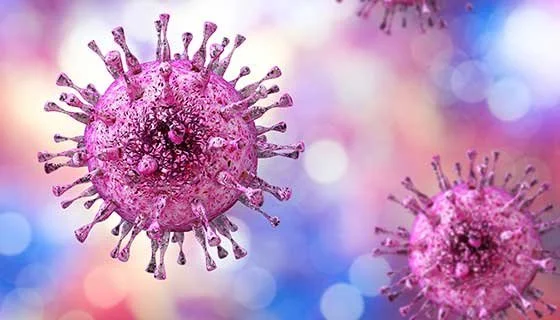In this blog post I look at sexually transmitted diseases (STIs), what to look out for, how to spot symptoms and how particular diseases are manifested in the bodies of women and men. I also address some commonly asked questions. In Vitalis Health in Belfast City Centre, Northern Ireland, we have a dedicated sexual health clinic providing confidential and discreet care for any sexual health issues.
Symptoms
The first thing to remember is that you may not have any symptoms. If you have no symptoms but you think there’s a risk that you have contracted an infection get checked out.
The most common STD is genital warts caused by one of the Human papilloma viruses (HPV). These don’t always look like warts. So, if you any growths, or flowery soft lesions either on or around the genitals or around the anus you may have genital warts.
If you have any painful ulcers on the genitals or around the rectum you probably have herpes. Herpes is another common infection similar to cold sores. There are two types: herpes I and II. Both can be contracted through sexual contact and that includes oral sexual contact.
If you have a painless ulcer it may be syphilis.
For Men The Most Common Symptoms Of A Bacterial STI Like Chlamydia Or Gonorrhoea Are:
Stinging at the end of the penis,
Pain on passing urine or
Redness and discharge from the end of the penis.
Men also can feel discomfort in the scrotum and should have this examined in case there is something else going on.
Pain in rectum or throat ( Most common in Men having sex with Men)
For Women, Chlamydia And Gonorrhoea Usually Cause:
vaginal discharge,
bleeding in between periods,
painful sexual intercourse or
pain in the pelvis.
Chlamydia
Both men and women can be infected with Chlamydia without symptoms, or there may be nonspecific mild symptoms like feeling like you have a urine infection.
Women often describe a white or yellow discharge or bleeding between periods. Often women see a doctor after unsuccessful treatment for a urine infection or thrush.
Men may experience stinging on passing urine or redness at the end of the penis.
Treatment is successful with the correct antibiotic, but you need to see a doctor to be examined and have a swab or urine sample tested. Sometimes women can take a swab themselves and men of course can leave in a urine sample.
Chlamydia is a common sexually transmitted bacterial infection (STI) that can also infect the eyes and rectum.
If left untreated it can cause inflammation in the reproductive organs and in some cases cause infertility. It can also cause scarring in the fallopian tubes ( the tubes that attach the ovaries to the womb) that may result in a pregnancy outside of the womb if one was to become pregnant (ectopic pregnancy).
This infection can also be passed onto your baby at birth.
Gonorrhoea
The majority of women who have gonorrhoea will not have any symptoms. And when they do have some symptoms it can be very similar to a urine infection or thrush.
Like Chlamydia, women can have bleeding between periods, increased vaginal discharge or pain/burning on passing urine.
For men the symptoms are often more clear, but again similar to Chlamydia:
A white, yellow, or green discharge from the penis;
Pain on passing urine
Painful or swollen testicles (although this is less common).
Rectal symptoms are also possible. They may either cause no symptoms or cause symptoms in both men and women such as:
Discharge ( a white or mucous liquid from the rectum)
Anal itching
Soreness
Bleeding
Painful bowel movements.
If your partner has an STD/STI or symptoms of an STD, such as an unusual sore, smelly discharge, burning when urinating, or bleeding between periods, you should both be examined and have some tests carried out.
Treatment is with an antibiotic. Over the last five years some antibiotics no longer work for gonorrhoea- the bacteria has developed resistance-and so it is important to have a swab or urine sample taken to confirm what antibiotic will correctly treat your infection.
Hepatitis B and C
Some people can have Hep B or C for some time without symptoms.
These two viral infections are transmitted either through blood products-blood transfusion or needle stick injury, or during unprotected sexual contact.
They mostly cause infection of the liver.
These days it is unusual to see this infection if you have had a blood transfusion or blood products such as plasma after the 1980’s; however, if you had a blood transfusion or plasma before 1980 that you would be at risk of this infection as blood was not screened for this virus.
Today, the most common means of contracting Hep B or Hep C from blood, is either from a needle stick injury at work or if you have used intravenous drugs recreationally. If you haven’t been exposed to blood products then the most common means of contracting Hepatitis B or C is through unprotected sexual intercourse.
In some countries screening of blood products began in the early 1970’s for hep A and B, but Hep C was not discovered until 1989. Before this time, it was known that something in blood was causing jaundice that was not Hep A nor Hep B, so it was known as NON Hep A/B infection.
Genital Herpes
Genital herpes is caused by the herpes simplex virus (HSV). There are two types. HSV-2 is usually only associated with genital infection. Whereas HSV-1 is mostly associated with cold sores around the mouth; however HSV-1 can affect the genitals as well..
Herpes HSV1 and HSV2
Genital herpes infection has the added complication that it may allow HIV to enter the body due to the breakdown in the skin. It can also cause severe disease if you are on drugs that lower the immune system and it can be fatal to the unborn baby.
Treatment is with antiviral tablets'; however in severe cases of lesions around the mouth affecting swallowing you may need to be admitted for intravenous medication in hospital.
Genital warts
Genital warts are caused by human papilloma virus (HPV).
There are many types of HPV. HPV types 6 and 11 cause the majority of genital warts.
They are very common and can come go without active treatment. If the warts are persistent or unsightly and you want them removed then a cream or liquid (Warticon) can be used over a period of 3-4 months to remove them.
Alternatively if you prefer to the genital wart removed quickly or if you have a large wart it can be frozen either with histofreeze or liquid nitrogen.
If you are pregnant it’s important to see a doctor before trying a cream as some of them can be harmful to the unborn baby.
Aldara is licensed for use in pregnancy and not known to harmful at the time of writing.
Persistent HPV infections can also lead to cancers – anal, throat and penile cancers in men, and vaginal, vulval and cervical cancers in women. The majority of HPV related cancers are associated with types 16 and 18.
HPV vaccine for girls was introduced as a school based programme in Northern Ireland in 2008/09. Until September 2012 the vaccine used protected against the oncogenic types 16 and 18, but not those types causing genital warts. From September 2012 onwards, the vaccine used also contains additional protection against types 6 and 11 which account for 90% of genital warts.
In September 2014 the HPV immunisation programme changed from a three dose to a two dose schedule for those starting the course under the age of 15, in line with national recommendations. From October 2016, the same quadrivalent HPV vaccine was introduced for Men who have sex with men (MSM) aged up to 45 years attending GUM or STI clinics.
Research shows that men who have sex with men (MSM) attending GUM, sexual health and HIV treatment services are more likely to carry HPV in comparison to heterosexual men. An example is HPV type16 which is associated with anal cancers in men who have sex with men (MSM) compared to heterosexual men. This is even more marked in those with HIV infection.
So it is important to consider HPV vaccination in this group.
Commonly asked questions about STD testing
Where Can I Get An STD Test?
In the UK there are two services provided by the NHS: You can either see your GP who can do swabs for Gonorrhoea and Chlamydia and if you are at risk of Hepatitis or HIV, these can usually be done too with your GP.
You can go privately to a GP who will usually perform these tests with a turn around time of 1-3 working days for most tests ( a swab for bacterial or fungi will take much longer)
You can also see a private sexual health consultant.
You can do a home postal service test which some people find convenient.
In Vitalis Health we offer a confidential private sexual health service where you can book a same-day-appointment for advice and treatment. We also offer home testing kits to buy. Anyone can attend our clinic, you don’t have to be registered with the NHS. We have patients visiting from all over Ireland.
Is There A Chance The STD Test Result Could Be Wrong?
The laboratory tests used for detecting the organisms that cause common STD’s are very sensitive. The swabs or urine that is tested look for DNA from the organism instead of trying to grow it as we used to commonly do. This means when the result is positive there is a 95% chance it is positive and similarly when it is negative there is a greater than 95% that it is negative.
The blood test that is done for HIV, syphilis and hepatitis on the other hand looks for at how our immune system has responded to the virus. If the test is done too soon i.e. before the body has had a chance to ‘react’ then a negative result may be reported. But if this same test is performed a few weeks later or even a couple of months later it may be positive.
Some labs offer a postal service to assess urine for DNA from the STI. This should be a first catch urine to ensure that there is no dilution of the organism, which is usually found in the male urethra. It is therefore better to take a swab from the urethra at the end of the penis. This can be uncomfortable as the swab is dry.
If the incorrect swab is taken a bacterial or fungal infection, which are not checked for on the ‘7-STI’s’ screening panel, may be missed.
This is why it is important to see the GP for a full consultation to discuss the timing of your tests and also what tests to do.
How soon can I have the test after the exposure (sexual activity)?
The laboratory recommend 10 days for viral tests such as HIV, hepatitis and syphilis, however, if you have any symptoms after a negative test result we will repeat the test for you.
In some cases it can take longer for the virus to ‘show’ in the blood stream so if the risk of exposure to something like hepatitis B or C is high we would repeat this in 1-2 months.
If you are not concerned about a viral infection risk but think you have chlamydia or gonorrhoea due to symptoms then we would test immediately. The time from exposure to developing symptoms for bacterial infection is variable and can be up to 1-2 months. If you have symptoms such as stinging when passing urine, or discharge from the penis or vaginal canal then there is no reason to wait to take a sample.
If this is your first possible exposure to an STD but you have no symptoms then we would consider which STD’s you are at risk of having; this depends on your sexual practices. Working forward from the date of exposure we would do the blood test for HIV, if needed, after 10 days, then a swab for Chlamydia and gonorrhoea from 14 days. Most tests can be done from 28 days onwards, however there is a chance of missing syphilis which can take as long as three months to show in the blood.
Do I have to wait For The Results Before Getting Treatment For An STD/STI?
If your symptoms clearly show a certain sexually transmitted infection such as herpes, Dr. Graham will treat you for this after taking a swab. If it looks like genital warts this can be treated without any tests being made.
Similarly, if your symptoms suggest thrush (candida infection), also a common sexually transmitted infection, you can be treated for this while waiting results of laboratory tests.
In some cases you may need to be referred to a sexual health consultant, this can be done privately or via the NHS to a Genito-urinary -medicine (GUM) clinic.
If you have had more than one known partner then you will be advised to attend the GUM (Genito-urinary medicine) clinic to ensure that any sexual partners are contacted to get tested. This is called contact tracing and and is very important to limit the spread of sexually transmitted infections.






